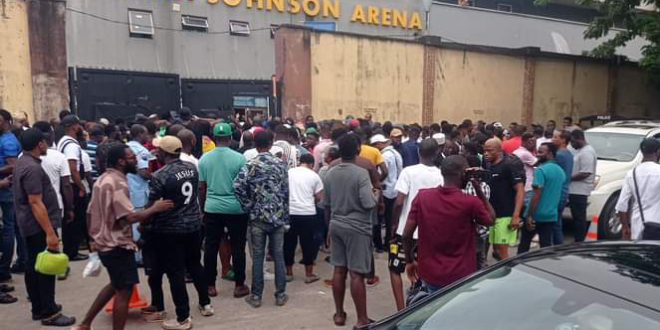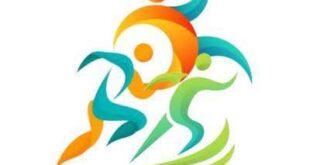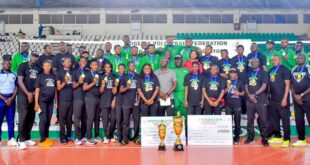By Bassey Ibiatisuho
Thirty three years ago, Nigeria football league turned professional, having been established under Decrees 10 and 11 of the Acts of Parliament and pronounced at the Onikan Stadium, now Mobolaji Johnson Arena in Lagos on the 12th of May, 1990.
From 1990 till date, it has not been a smooth ride for the Nigerian football league, it has been through very good, very bad and very ugly times and seasons characterized by great successes, failures, violence, allegations of misappropriation and bribery, security breaches and a whole lot of unsporting experiences much to the displeasure of the fans who are the end consumers of the board-room politics, stadium mismanagement and on the pitch drama that has demoted the professionalism in the nation’s football league the last 33 years.
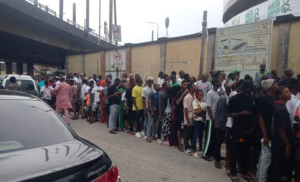
As rightly opined by former Super Eagles coach, Christian Chukwu who has played, coached, and also managed clubs in the league, “At least, there are stadiums everywhere now, right? That’s some improvement. We have also improved in terms of players’ welfare but things can be better.”
“Until we start leaving the government out of clubs management, we still have a long way to go.” We need the government to take off their hands off club management totally, we need to get sponsors to do these things, sports is business,” the former coach added.
The just concluded Naija Super 8 Tournament, organized by Flykite Production has proven that football is a serious business and can work in Nigeria with positive returns if well managed. The well promoted and packaged tournament ensured that there was adequate security before, during and after every match, strict revenue generation through ticket sales, excellent entertainment by top class Nigerian artists to keep the stadium alive and a relaxed atmosphere for players, officials and fans who also got gift packs from sponsors while enjoying the games.
Having all the matches from the playoffs in Eket, Akwa Ibom State to the finals at the Mobolaji Johnson Arena in Lagos on DSTV for global audience with big brands as sponsors and partners in just the inaugural outing, should worry and perhaps challenge the managers of the football league in the country, still lacking a title sponsor and running the league like one of those activities in the dark ages without exposure. The poor standard of the league has forced many of our exceptional talents to signed slave contract in some obscure leagues abroad.
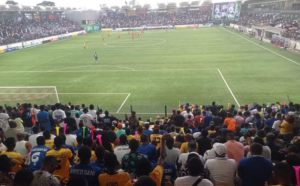
Mistrust remains one of the biggest problems of the Nigeria Professional Football League. Fans don’t trust the organisers and the decisions of referees, and little or no effort has been made to change that impression, that’s responsible for the empty stands at the stadium, yet packed full viewing centres with football fans across the country watching the English Premier League and many others streaming it online.
Visibility is key for exposure to a larger audience, it builds brand awareness, so that people know who you are and what you are doing. It establishes credibility and expertise and opens door to deals and partnership.
The Naija Super 8 disrupted the Nigerian football league terrain, having six teams; Rivers United, Enyimba International, Remo Stars, Yobe Desert Stars, Katsina United and Lobi Stars that qualified from the playoffs in Eket and two wild card teams; Akwa United and Sporting Lagos compete to collectively earn over N100 million in what will go down as the best organised pre-season football tournament in Nigeria. There was monetary reward for every participating team.
Kudos to the organisers, Flykite Production for putting together a standard and quality football tournament, and most especially for exposing Nigerian football on terrestrial television for Nigerians within and outside the country to enjoy the games. That is how football leagues run and that is how the Nigeria Professional Football League should be to have worldwide exposure and attract sponsors and broadcasters, which will result in significant financial rewards for the clubs and players involved.
According to Deloitte Analysis, the English Premier League clubs reported record revenues of £4.5billion in the 2016-17 season, and also returned to profit and broadcast right sales.
A major portion of that revenue came from the £296 million SuperSport paid for exclusive broadcast right to Nigeria and other sub-Saharan markets.
The African markets have contributed to the enormous income of the EPL through brand affiliation deals from the likes of Nigerian Breweries, Glo, Sterling Bank, Zenith Bank, Dangote Group MTN, Airtel and the list goes on.
The allure of Europe and Champions League football may still be too much to turn down for some time to come, but at 33, the NPFL has come of age and beyond to be packaged with marketability value and with games broadcast live on television for global audience. The NPFL is a good league, but its market value is very low even when it exist among brands plunging millions of pounds into the English Premier League. Sadly, trust, proper management and exposure are in short supply in the NPFL and these enablers are needed in full dose to attract sponsors and investors.
Meanwhile, congratulations to Sporting Lagos for winning beautifully, the inaugural edition of the Naija Super 8 and thank you the ‘Noisy Lagos Fans’ for bringing such energy and passion back to our football. Indeed, when the passion is right, nothing is impossible!
 GongNews … truth in defense of a just society
GongNews … truth in defense of a just society
